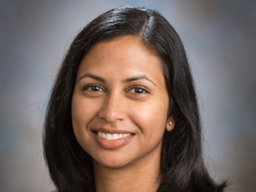How Urbanization Of Grasslands In The Denver Region Changes
CUERE Fall Seminar featuring Dr. Aditi Bhaskar
Location
Online
How Urbanization Of Grasslands In The Denver Region Changes – Online Event
Date & Time
October 8, 2021, 2:00 pm – 3:00 pm
Description
On behalf of the Center for Urban Environmental Research and Education and their Fall 21 Seminar Series, the Department of Geography & Environmental Systems cordially invites you to join us for a Virtual Seminar on Friday, October 8th at 2PM ET.
How urbanization of grasslands in the Denver region changes streamflow
Dr. Aditi Bhaskar
Department of Civil and Environmental Engineering
Colorado State University
Department of Civil and Environmental Engineering
Colorado State University
This talk presents an analysis of the changes to streamflow in the semi-arid area of Denver, Colorado, USA with a focus on (1) contributors to stream baseflow and (2) an analysis of changes in streamflow response to rainfall events with urbanization. To estimate contributions to stream baseflow, we used water-stable isotope (δ18O and δ2H) analysis of surface water, tap water, and precipitation. Thirteen urban streams and two grassland streams were selected for sampling. An isotope mixing analysis using tap and precipitation end-members over a two week antecedent period estimated that tap water contributed a mean of 80% of urban baseflow on specific days in late summer. After taking contributions from infrastructure leakage into account, we estimated that lawn irrigation return flows made up 32% to 82% of analyzed baseflow. For changes to streamflow response to rainfall events, we used eight years of instantaneous streamflow data in 21 watersheds ranging in size from 1 to 90 km2 with impervious areas ranging from 1% to 47%. Using a semi-automated method to identify a total of 2,877 streamflow events, we analyzed event-based metrics of peak flow, runoff depth, runoff ratio, time to peak, duration, and number of streamflow events occurring in response to rainfall events, in addition to precipitation threshold and zero flow. We found that more impervious watersheds had perennial or nearly perennial flow, unlike the least impervious watersheds which usually were dry. Streamflow events were shorter in duration and had higher peak flow in watersheds with more impervious surface cover. This work points to the need for local adaptation of stormwater management that seeks to mitigate the effects of streamflow changes with urbanization.
Dr. Bhaskar specializes in changes to hydrologic systems from urban development, with a focus on interactions between groundwater, surface water, and engineered stormwater and water distribution systems. Dr. Bhaskar received a Sc.B. in Geology-Physics/Math from Brown University in Providence, Rhode Island, and a Ph.D. in Environmental Engineering from University of Maryland, Baltimore County. She was a graduate trainee of the National Science Foundation Integrative Graduate Education and Research Traineeship (IGERT) in “Water in the Urban Environment” at UMBC. Dr. Bhaskar was then awarded a National Science Foundation Earth Sciences Postdoctoral Fellowship, which took her to the Eastern Geographic Science Center at the U.S. Geological Survey in Reston, Virginia, before joining CSU.
Tags:
